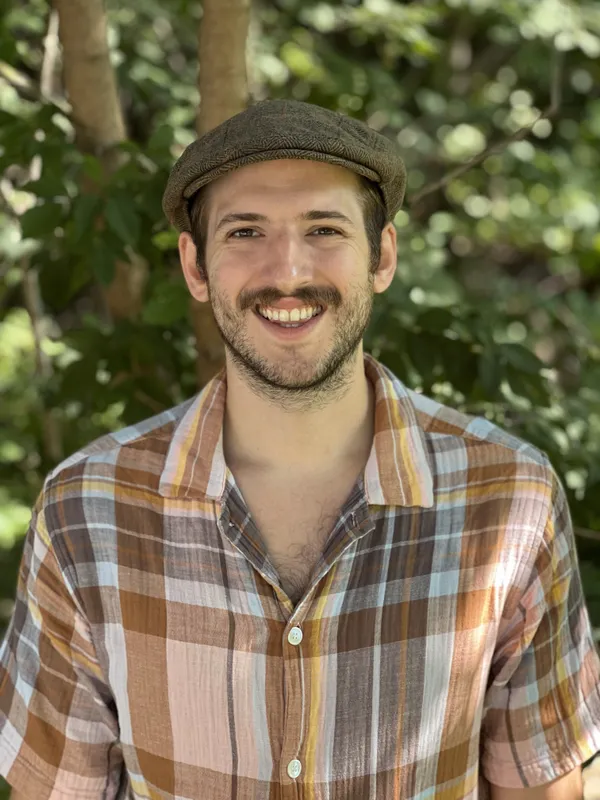
Justin Appler
MPS
Registered Psychotherapist (Qualifying)
 English
English
Justin's
Warm video welcome

Our therapy sessions will be a safe space where you become intimate with the healing power of your own potential and aligned with your deepest values. If this is what you are looking for, I would love to support you as you uncover your essential goodness and journey towards wholeness.
Parcours
My clinical experience includes working with individuals, couples, and families through life transitions, health crises, and bereavement. As a spiritual care provider I have supported patients at Princess Margaret Cancer Centre and Toronto General Hospital. Since 2024, I have worked as a spiritual care provider at SickKids, providing psychosocial support through therapy, rituals, and mindfulness practices. I have been working in private practice since 2024, providing psychotherapeutic care to a wide range of clients seeking to change how they relate to the challenges in their lives so they can live with a greater sense of peace and be resilient in the face of uncertainty.
Votre expérience thérapeutique avec moi
I offer a safe and supportive space where you can explore your healing potential and reconnect with your essential goodness. Together, we’ll work to build emotional resilience, clarify your core values, and support you in living more authentically and peacefully. I believe that healing past traumas and emotional wounds can lead to a deeper sense of wholeness and more fulfilling relationships. With empathy and compassion, I support individuals navigating uncertainty, life transitions, and emotional challenges. My areas of focus include grief, trauma, anxiety, depression, life transitions, relationship difficulties, spirituality and religion, death and dying, health issues, and LGBTQ2A matter
Domaines d’expertise
Ces domaines représentent mes expertises principales, soutenues par une formation spécialisée et une vaste expérience clinique.

Deuil et perte (Grief & Loss)

épuisement professionnel (Burnout)

Transitions de vie (Life Transitions)

Épanouissement personnel (Personal Growth)

Relation de couple (Couple Relationship)

Relations familiales (Family Relationship)
J’offre également un accompagnement compétent dans ces domaines et j’accueille les client·e·s qui souhaitent du soutien sur ces enjeux.

Infidélité (Infidelity)

Traumatisme (Trauma)

Traumatisme de l'enfance (Childhood Trauma)

estime de soi (Self Esteem)

Anxiété (Anxiety)

Dépression (Depression)
Approches thérapeutiques
Voici mes principales approches thérapeutiques, soutenues par une formation spécialisée et une expérience clinique approfondie.

Thérapie centrée sur la personne (Person-centered Therapy)
In Becoming a Person, Carl Rogers explains that mental health symptoms arise from a disconnect between an individual's conscious experiences and their inner values. To achieve well-being, one must align with their authentic Self, which may differ from societal or familial expectations. Rogers describes therapy as a journey of uncovering the true Self by removing masks shaped by external pressures, allowing individuals to experience themselves more deeply. With empathy and unconditional positive regard from the therapist, clients begin to embrace change, recognizing their symptoms as part of their evolving self, not a static condition. As clients integrate denied experiences, they shift from external validation to internal self-acceptance, resulting in a healthier sense of self and decreased symptoms.

Thérapie psychodynamique (Psychodynamic Therapy)
Psychodynamic therapy is a therapeutic approach rooted in the belief that unconscious thoughts, feelings, and past experiences significantly influence current behavior and emotional functioning. Developed from Freudian theory, it focuses on exploring unresolved conflicts, childhood experiences, and internalized patterns that shape one's psychological state. Psychodynamic therapy views the therapeutic relationship as a mirror for understanding patterns in relationships outside therapy. During treatment, clients are encouraged to explore repressed memories, dreams, and feelings, often uncovering unresolved conflicts. The therapist's role is to guide the individual through this process. Through self-awareness and reflection, psychodynamic therapy aims to resolve internal conflicts, enhance emotional regulation, and foster healthier coping mechanisms. It can be especially helpful for those struggling with long-standing issues like depression, anxiety, and relationship difficulties.

pleine conscience (Mindfulness)
Mindfulness meditation and psychotherapy are increasingly being integrated as effective approaches to mental health treatment. Mindfulness meditation focuses on cultivating awareness and acceptance of the present moment and observing one's thoughts and emotions without judgment. This practice helps reduce stress, anxiety, and depression by promoting emotional regulation and fostering a calm, focused mind. In therapy sessions, mindfulness encourages openness and, improves self-awareness and emotional resilience.

Théorie des Sous-systèmes Intrapsychiques (IFS)
In Internal Family Systems (IFS), the Self is defined by eight qualities: confidence, calmness, creativity, clarity, curiosity, courage, compassion, and connectedness. It is a compassionate, wise core within all individuals, unaffected by trauma. IFS identifies two types of internal protectors: managers and firefighters. Managers help maintain function by keeping exiled parts (vulnerable, child-like aspects of the self) hidden from conscious awareness and often suppress emotions. Firefighters respond to emotional pain by numbing it, often through addictive behaviors. IFS views "pathological" symptoms as protective measures, with the goal of therapy to help individuals reconnect with their Self. The therapist guides the client in “unblending,” allowing the Self to lead and enabling the exiled parts to heal through compassion and acceptance. The concept of Self is universally accessible, aligning with spiritual concepts across different traditions, such as chi, prana, or Christ consciousness, offering a flexible framework for healing.
Communautés desservies et expertise culturelle
Voici les populations et communautés culturelles que je suis particulièrement qualifié·e à soutenir.
Populations que je dessers

Adultes

Jeunes et jeunes adultes

Enfants

Communauté 2SLGBTQIA

Aînés
Communautés culturelles que je comprends

Immigrant de première et deuxième génération

Asiatique de l'Est
Titres professionnels

Registered Psychotherapist (Qualifying)
- No de permis 17664
College of Registered Psychotherapists of Ontario
Parcours académique

Masters of Psychospiritual Studies
Emmanuel College, University of Toronto , Canada

